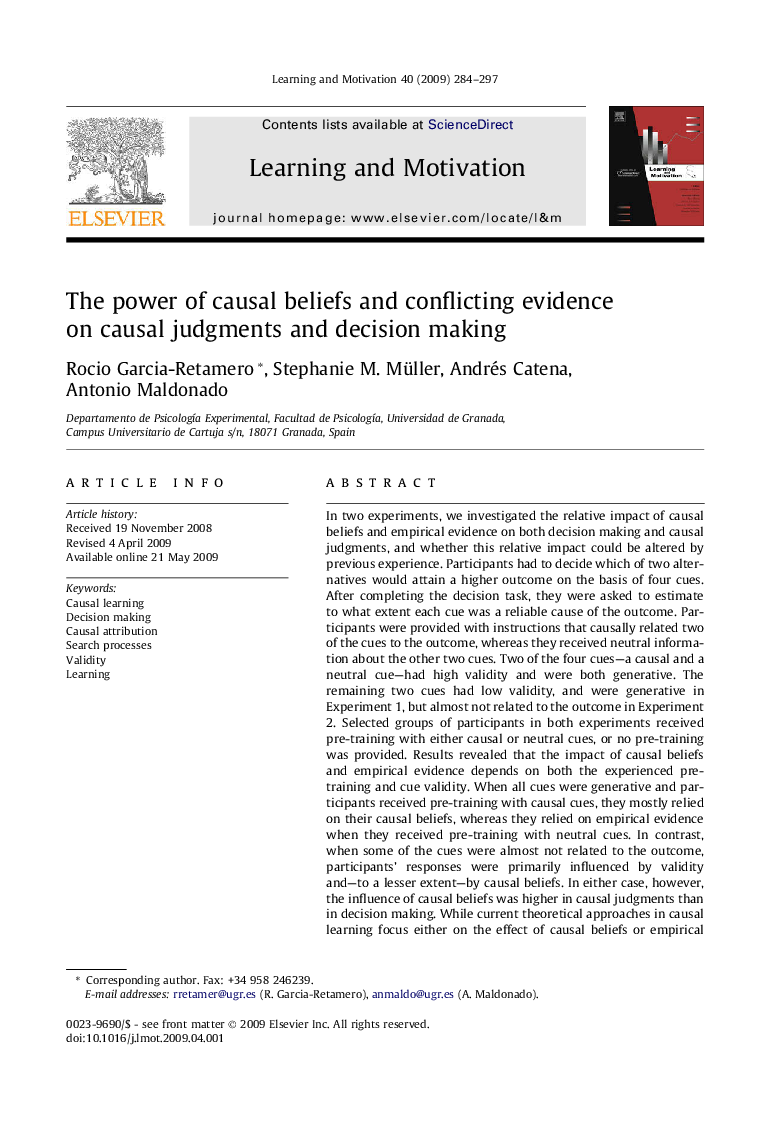| کد مقاله | کد نشریه | سال انتشار | مقاله انگلیسی | نسخه تمام متن |
|---|---|---|---|---|
| 919044 | 919876 | 2009 | 14 صفحه PDF | دانلود رایگان |

In two experiments, we investigated the relative impact of causal beliefs and empirical evidence on both decision making and causal judgments, and whether this relative impact could be altered by previous experience. Participants had to decide which of two alternatives would attain a higher outcome on the basis of four cues. After completing the decision task, they were asked to estimate to what extent each cue was a reliable cause of the outcome. Participants were provided with instructions that causally related two of the cues to the outcome, whereas they received neutral information about the other two cues. Two of the four cues—a causal and a neutral cue—had high validity and were both generative. The remaining two cues had low validity, and were generative in Experiment 1, but almost not related to the outcome in Experiment 2. Selected groups of participants in both experiments received pre-training with either causal or neutral cues, or no pre-training was provided. Results revealed that the impact of causal beliefs and empirical evidence depends on both the experienced pre-training and cue validity. When all cues were generative and participants received pre-training with causal cues, they mostly relied on their causal beliefs, whereas they relied on empirical evidence when they received pre-training with neutral cues. In contrast, when some of the cues were almost not related to the outcome, participants’ responses were primarily influenced by validity and—to a lesser extent—by causal beliefs. In either case, however, the influence of causal beliefs was higher in causal judgments than in decision making. While current theoretical approaches in causal learning focus either on the effect of causal beliefs or empirical evidence, the present research shows that both factors are required to explain the flexibility involved in human inferences.
Journal: Learning and Motivation - Volume 40, Issue 3, August 2009, Pages 284–297